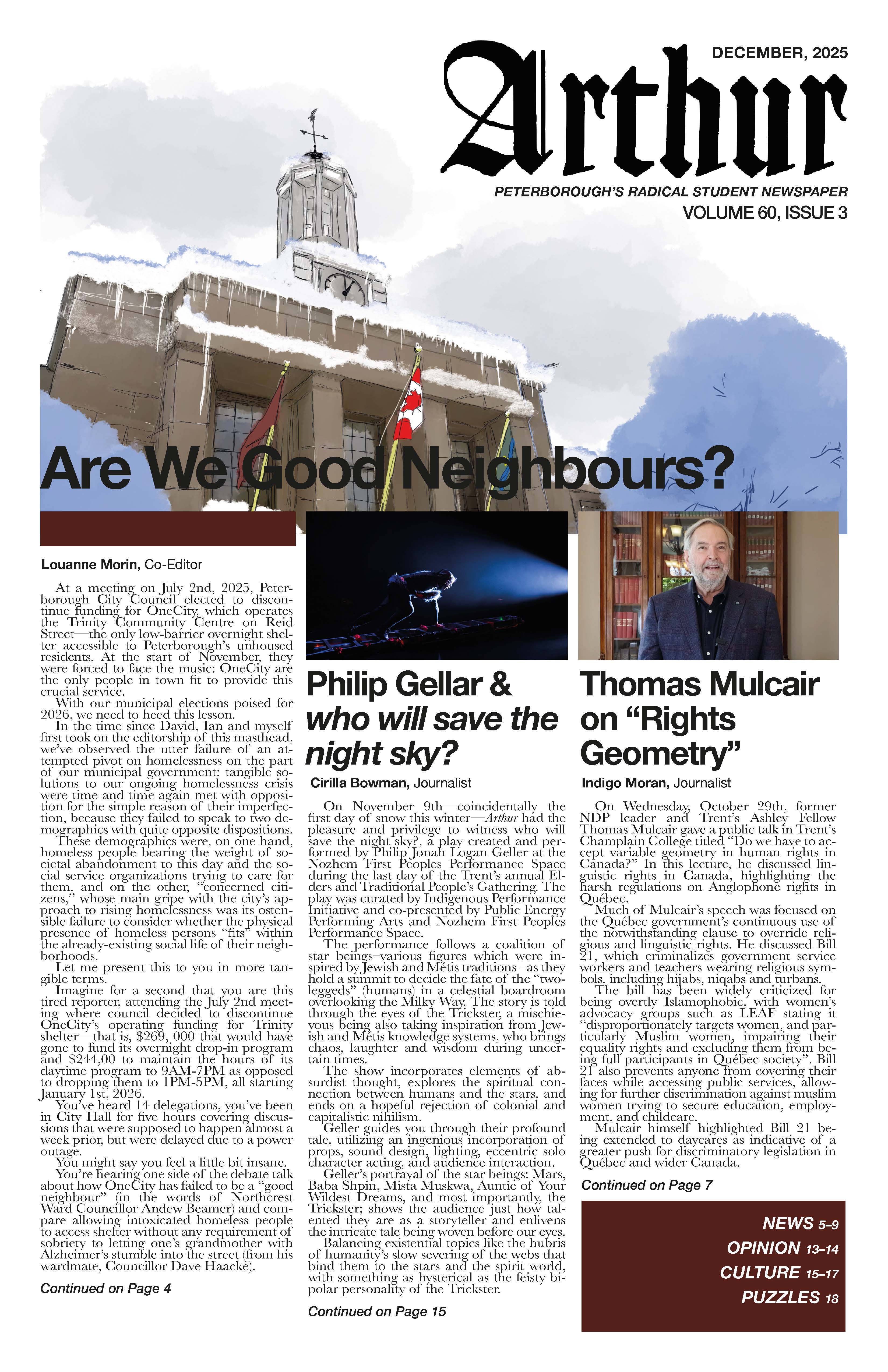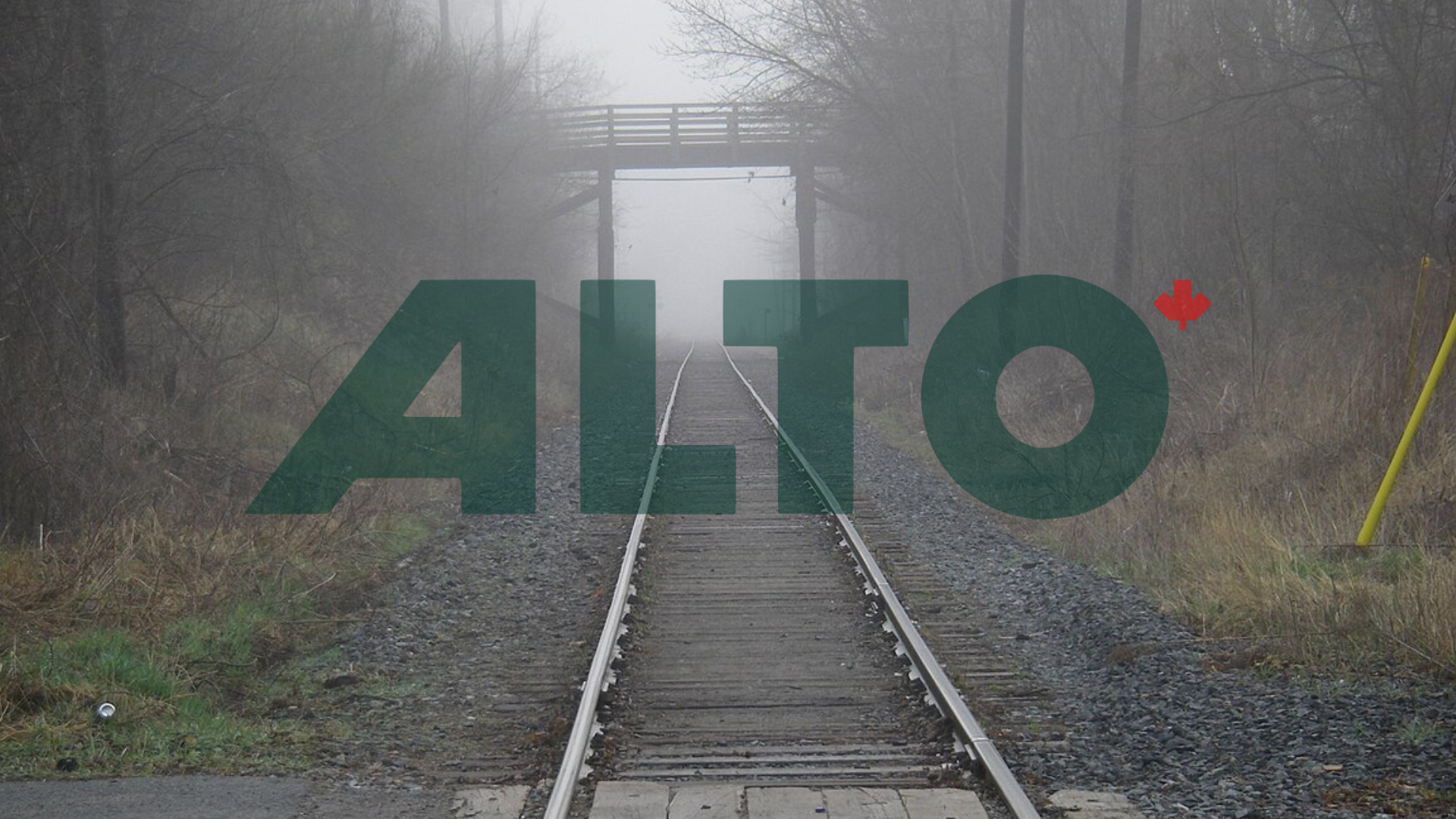This week is Islam awareness week, run by Trent Muslim Students Association (TMSA) to discuss Islam and to encourage a better understanding of the lives of Muslims in Canada. As complicated as it is to try to articulate the nature of any religion, the timing of the week makes it particularly important.
Throughout Western countries, Muslims are coming under greater pressure, whether it is due to the stereotypes of refugees in Europe or due to those fanatically dull and cruel hillbillies pillaging Syria and Iraq, giving their religion a perception it does not merit, and acting without the mercy Islam preaches. In turn, this has led to rising levels of Islamophobia in the West. This was the subject of Wednesday’s talk.
Dr. Kenzu Abdella gave the talk. Associate Professor of Mathematics at Trent, he is also the President of Kawartha Muslims Religious Association. In this role, he was at the centre of Peterborough’s own outburst of Islamophobia: the recent arson attack on Peterborough’s mosque.
After beginning wittily with his own equation for Islamophobia, Abdella went on to explain exactly what Islamophobia is, and where anti-Islamic sentiment comes from. Islamophobia is the irrational fear of Muslims and Islam.
As per most phobias of particular groups of people - whether based on religion, ethnicity, race, gender or sexual orientation - the phobia stems from ignorance, partly wilful and partly through lack of exposure to the world. Both are difficult to counteract.
Today more than ever, the cycle of the wilful “informing” the unexposed, and the unexposed reinforcing the wilful, is exacerbating the rising Islamophobia in the West. As has been the case with the Conservative debate surrounding the burqa, and the right wing press in the UK and United States, much of the press has managed to cultivate a violent and extreme image of Islam amongst sizeable pockets of western communities.
As said by Muhammed Arif Khan, President of Trent Muslim Students Association, “In daily lives, there are lots of misconceptions around Islam” - unfortunately, a lot of these misconceptions come from the media’s portrayal of Muslims.
Abdella’s talk sought to break down various issues, deconstructing myths and separating the Islamic from the specific cultural practices. As he said, when Muslims from all backgrounds come together in Peterborough, the Islam they practice is the same. Many of the misconceptions come when particular cultural norms in a country or region are seen as specifically Islamic.
The lecture was simple, sensible and insightful, the layman or woman would have garnered as much from the talk as the scholar. Indeed, the audience seemed to span these ends.
He refuted the claim that Islam is an inherently violent religion. He cited World Health Organisation (WHO) statistics on homicides per capita, with no Muslim country in the top fifteen, and that none of the ten largest genocides in history have been associated with Islam. Indeed, only two mass shootings in the U.S. were committed by Muslims - there were a total of 335.
For reducing the incidence of Islamophobia, Abdella had several solutions. Following his eminently sensible route, the government, media, and Muslims themselves were at the heart of reducing Islamophobia.
Firstly, all governments should work closely with Islamic organisations and Muslim communities. Government should listen to the communities’ fears and how they can address them, and then they would be more aware of how their policies affect Muslims.
Next, he said that the media must improve their reporting of Muslims. Particularly, a “far more balanced view” is needed, and when talking about terrorism, it should avoid associating it with Muslims and Islam. In light of the Oregon militia’s occupying of a government building and the South Carolina killer Dylann Roof’s mass shooting, this aspect of media coverage has been well documented. If Muslims had committed these acts, their religion would be invoked and terrorism the crime. It is an important hypocrisy that needs to be addressed, as a lot of ignorance stems from this kind of reporting.
Furthermore, schools should take stronger action in educating about world faiths. Arguably, your experiences in school will mould your world view more than anything. You can’t really instil open-mindedness too early, nor can judging folks on their actions be encouraged too soon.
Finally, Abdella made a very strong point of referring to the important role that Muslims have in reducing Islamophobia. If the ignorant don’t want to educate themselves, Muslims can just bring the education to them.
As well as maintaining security and remaining vigilant, cooperating with the law regarding extremism, Muslims should look to provide their own positive narrative media. In my mind, it seems absurd that Muslims should have to at all. Christians, Jews, Sikhs, and Rastafarians aren’t encouraged to do this for their own faiths, but I guess this is the unfortunate climate we live in.
An event like Islam Awareness week is an excellent example.
In 630 A.D., the Prophet Muhammed took over Mecca with his army of Muslims and allied tribes. After the Meccans conceded defeat, he took the city without bloodshed and without forcing anybody to convert to Islam. It is thus a lovely irony that Islamophobes could do with a bit of Islam, a religion and a history preaching peace in times of war.
This is why events like Islam Awareness week are so important, to break down extremely complex faiths and to dispel myths. No religions is perfect - in fact, most are far from it - but they still provide important lessons for us all to bear in mind, for fundamentalist atheists and believers, and for the fundamentally unconvinced.
Well done and thank you to Dr. Abdella for an interesting and accessible talk.


.png)


.jpg)


.jpeg)



.jpg)

.jpg)









.png)